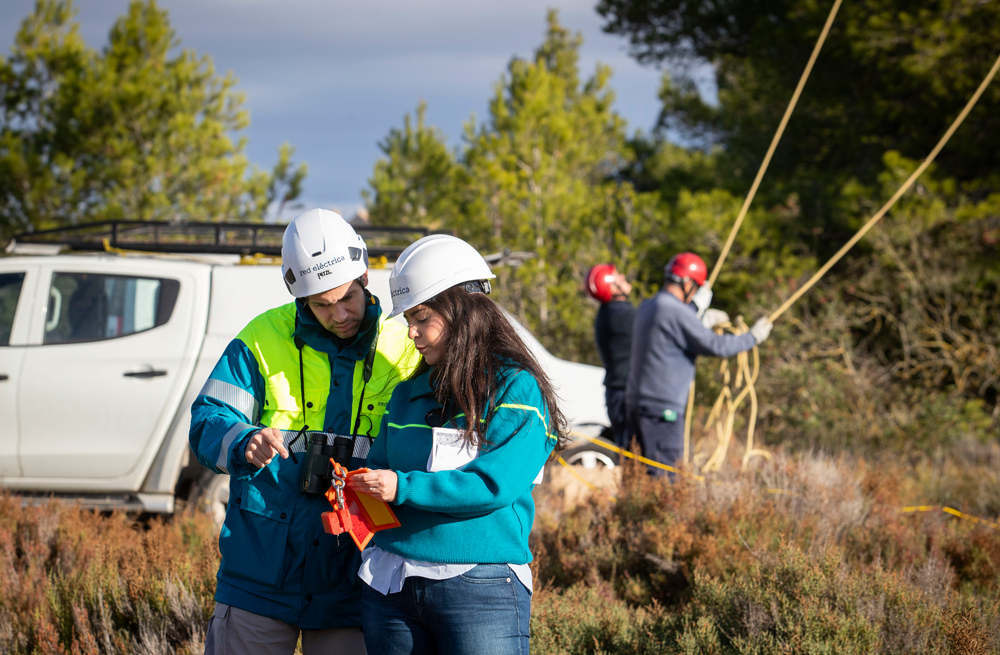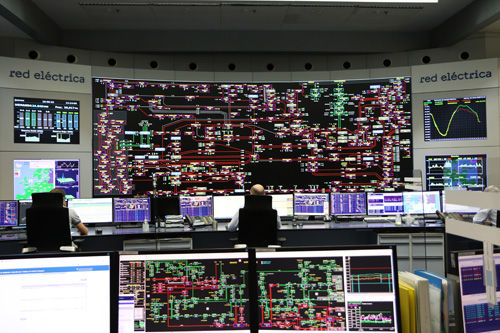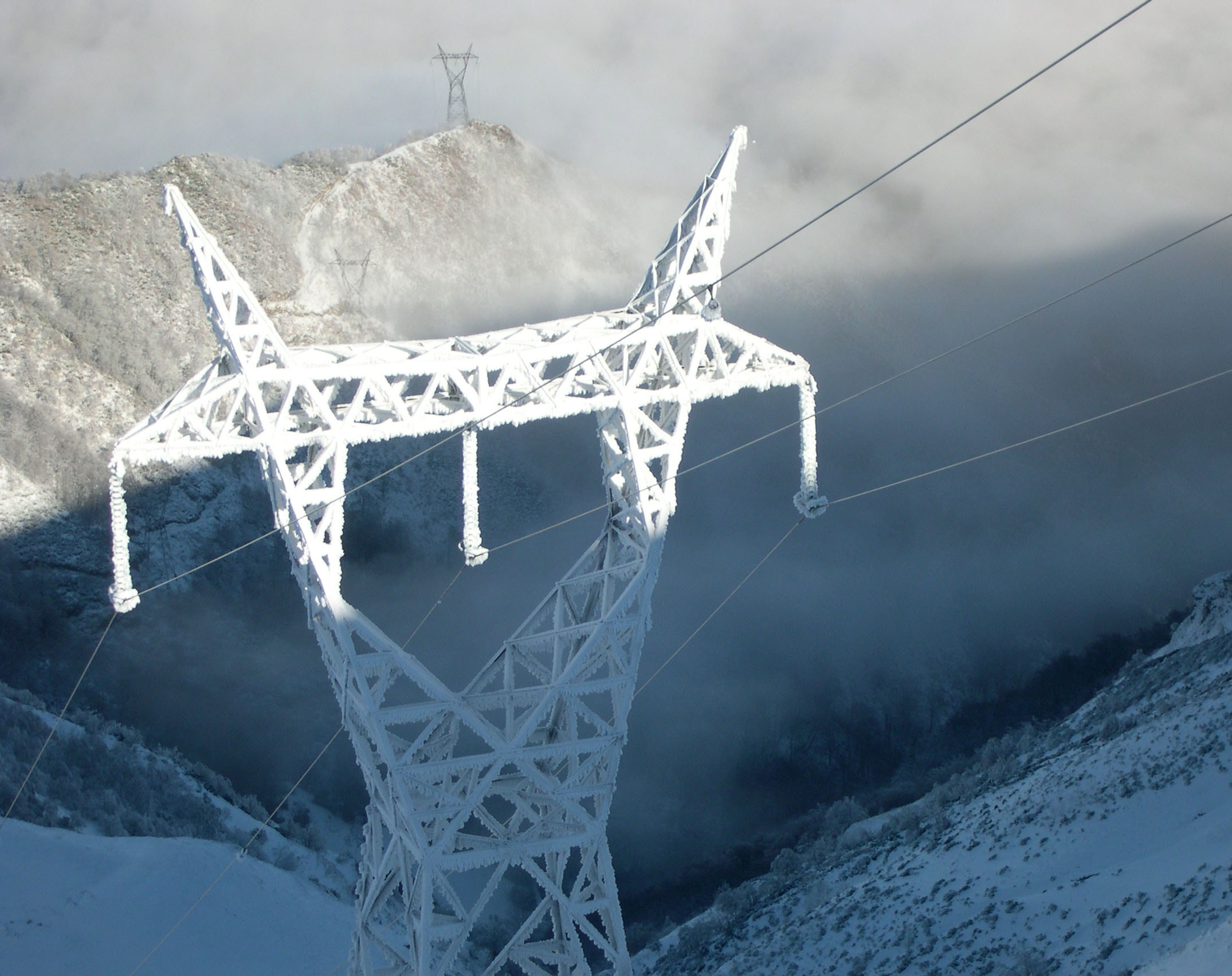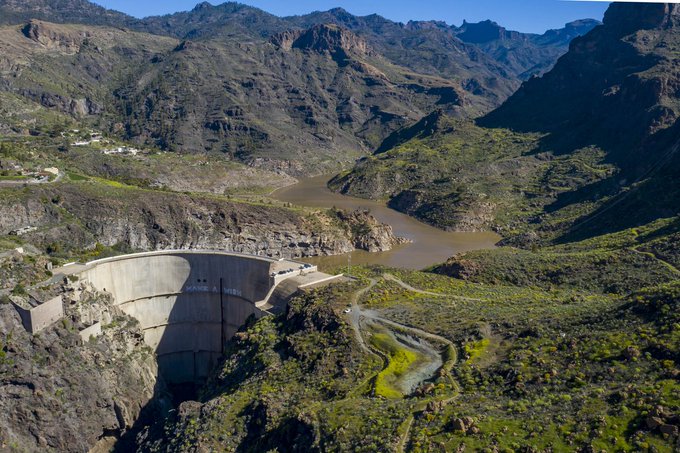Discover what Red Eléctrica is, what we do, and why we are the backbone of the electricity system in Spain and the ecological transition.
Red Eléctrica’s Chairwoman and the President of Ceuta analyse the electricity interconnection project with the autonomous city of Ceuta
- Beatriz Corredor has also initiated contacts with the Mayor of the city of La Línea to establish dialogue channels to help reach the best solution for the general interest of the citizens.
- The electricity interconnection between the Spanish Peninsula and Ceuta is included in the 2015-2021 Electricity Planning as per that established in the state's energy policy and it represents a project which Red Eléctrica is legally bound to carry out.
Red Eléctrica’s Chairwoman, Beatriz Corredor, and the President of Ceuta, Juan Jesús Vivas, held a meeting with the aim of exchanging views and jointly analysing the electricity interconnection project between the Peninsula and the autonomous city of Ceuta. This project is encompassed in the transmission grid planning approved by the central government for the period 2015-2021, and whose execution falls under the responsibility of the Red Eléctrica.
Following the meeting, Ms. Corredor expressed Red Eléctrica's intention to "collaborate closely with all stakeholders involved in the project, seeking a position of dialogue, consensus and maximum openness, in order to incorporate whatever enhancements might be considered necessary from an economic, social and environmental standpoint, and since the project is still in its initial stages, there is sufficient time for us to bring together all the necessary suggestions".
In the same vein, Red Eléctrica’s Chairwoman has also recently established contact with the Mayor of the city of La Línea, Juan Franco, to whom, in a letter sent a few days ago, she pledged her full willingness to enter into dialogue as soon as possible and establish the appropriate meetings "with the will to come to an agreement in order to reach the best solution for the general interest of the citizens of La Línea".
For his part, the President of Ceuta, Juan Jesús Vivas, emphasised "the strategic value of the interconnection, insofar as it will mean a before and after for the autonomous city." Mr. Vivas reiterated "the importance of providing security, stability and quality in a vital supply for the development of Ceuta, as well as having a highly positive impact on the environment, on generation costs and on the potential for the development of renewable energy".
The interconnection project between the Spanish Peninsula and Ceuta represents an opportunity for the relaunch of clean energy in the Campo de Gibraltar and the consolidation of a stable electricity system in the autonomous city of Ceuta.
The new infrastructure will strengthen the meshing of the peninsular high-voltage grid and will increase the reliability and guarantee of the electricity supply in this area of the province of Cadiz, enabling the future integration of between 390 and 520 MW of renewable energy. This capacity could turn the city of La Línea into a 100% renewable municipality, with the possibility of exporting to neighbouring municipalities.
Furthermore, the future interconnection will help Ceuta replace the use of fossil fuels with clean energy, as well as improve the stability of the electricity system and the guarantee of supply, thus guaranteeing social equity within the area of influence of the interconnection, in addition to contributing to reducing CO2 emissions and lowering the cost of electricity for all consumers.










